Dates: Basketry classes are offered throughout the year. Check the schedule below for current classes.
Class size: Classes are 2-10 people. Typically we have an instructor-to-student ratio of 1:5 to ensure that students receive enough hands-on instruction through the weaving process.
Ages: 16+. Students ages 12-16 are welcome to enroll with an adult.
Tuition: Sliding scale: $150–250, including all materials. Scholarships are available.
Winter – Spring 2025 Basketry Schedule
| Dates | Location | Teacher(s) | Class | Register |
|---|---|---|---|---|
| January 18, 2025 | Palisade, Colorado | Jenna Bradford | Willow Weaving: Tatzas and Tension Trays | Register |
| February 1, 2025 | Paonia, Colorado | Jenna Bradford | Willow Weaving: Flower Basket | Register |
| February 9, 2025 | Carbondale, Colorado | Jeff Wagner | Willow Weaving: Flower Basket | Register |
| February 16, 2025 | Carbondale, Colorado | Jeff Wagner | Willow Weaving: Oval Basket | Register |
| March 1 – 2, 2025 | Palisade, Colorado | Jeff Wagner | Willow Weaving Weekend | Register |
| March 15, 2025 | Carbondale, Colorado | Jenna Bradford | Willow Weaving: Wall-Hanging Basket | Register |
| April 19, 2025 | Durango, Colorado | Jenna Bradford | Willow Weaving: 5-Ring Frame Basket | Register |
| May 3, 2025 | Grand Lake, Colorado | Jenna Bradford | Willow Weaving: 5-Ring Frame Basket | Register with Rocky Mountain Folk School |
Groundwork offers basketry classes for all skill levels! Join us to weave your first basket, develop more advanced basketry techniques, or take on an ambitious project to weave the pack basket of your dreams!
At Groundwork, we see willow basketry as a foundational practice of belonging in Colorado. Cultivating basketry willow for weaving is a multi-year process, requiring tending willow patches through the seasons and building a relationship with the plants we harvest from. Willow is a plant that responds well to human disturbance: the plants grow stronger and spread more when cut every year for baskets. When willow patches are neglected, they become overgrown, branchy thickets. We harvest willow locally, and our baskets represent a positive, mutually-beneficial relationship between people and willow. To us, willow basketry is part of a vision for a healthy cultural relationship with the land in Colorado.
Basket Class Descriptions
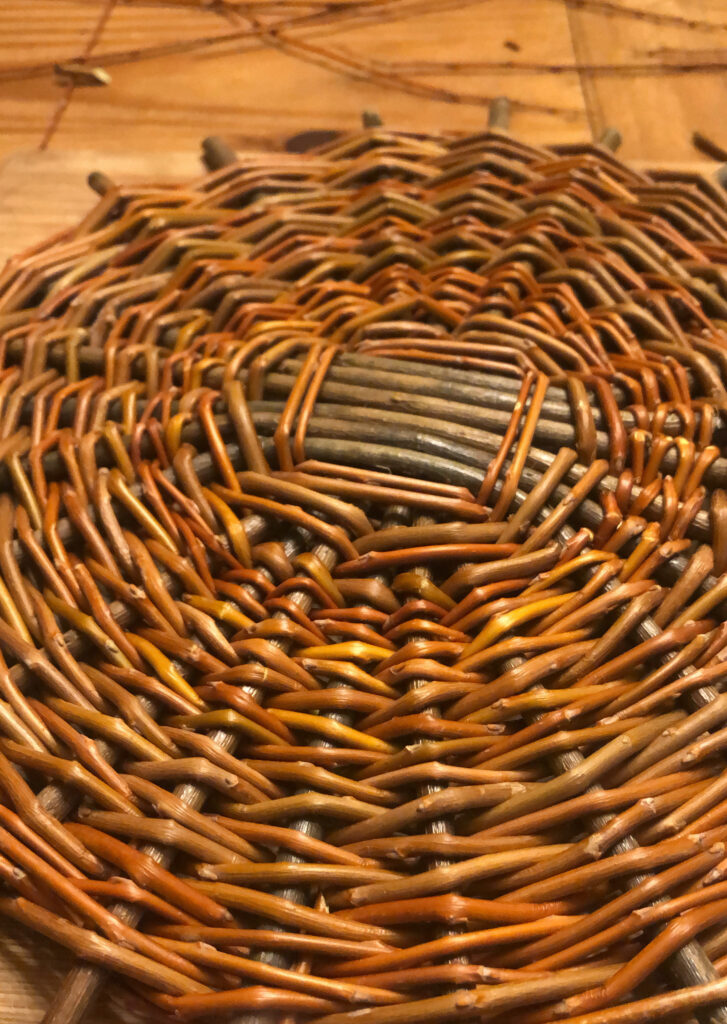
Intro to Weaving: Bases
Level: Beginner (No experience needed, but great for developing base-making skills)
Class Length: 6 hours (9am to 4pm with a 1-hour lunch break)
In this class, you will learn how to weave round bases for stake and strand willow baskets using the pairing weave. This class is a great way to start your basket journey or to strengthen your basketmaking skills. You will walk away with at least two 10 inch bases that can be used as trays, trivets, or as the base of your next basket!
Skills: Willow harvesting and tending, preparing willow for weaving, simple bases, pairing weave.
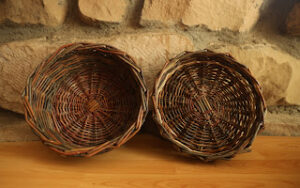
Round Fruit Baskets
Level: Beginner/Intermediate
Class Length: 6 hours (9am to 4pm with 1-hour lunch breaks)
In this class, you will learn how to weave a shallow round fruit basket. You will develop your base-weaving skills by using the french randing technique on your base. You will then “stake up” strong willow rods, use the three-rod wale to weave the walls of your basket and finish it with a simple border. These techniques form a great foundation for all round stake and strand woven baskets.
Skills: Round French randing weave, staking up, three-rod wale, simple borders.
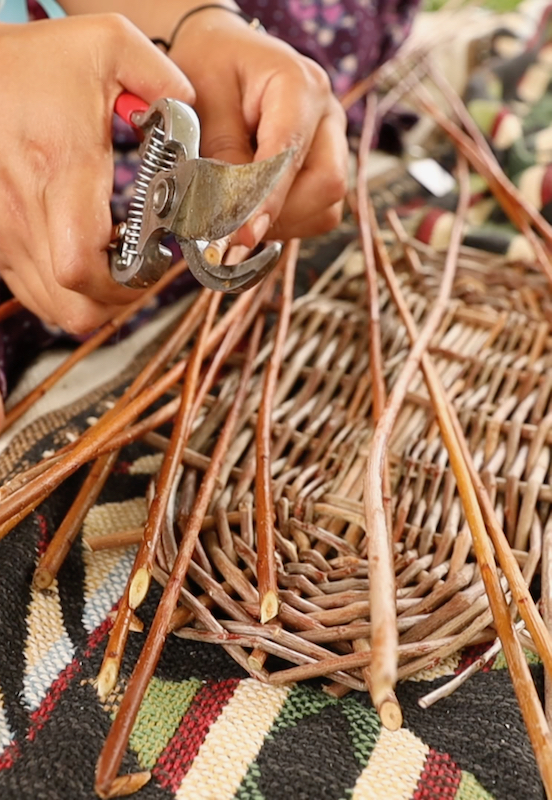
Oval Centerpiece Baskets
Level: Beginner/Intermediate
Class Length: 6 hours (9am to 4pm with 1-hour lunch breaks)
In this class you will learn how to weave an oval base using french randing and pairing weaves. You will then “stake up” strong willow rods and use a three-rod wale to weave the walls of your basket before finishing it with a simple border. This class is a great foundation for oval stake and strand woven baskets.
Skills: Oval French randing bases, staking up, three-rod wale, simple borders.
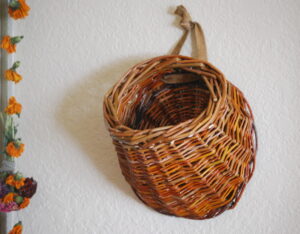
Wall-Hanging Baskets
Level: Beginner/Intermediate
Class Length: 6 hours (9am to 4pm with 1-hour lunch breaks)
In this class, you will learn how to weave a round wall-hanging basket. You will develop your base-making skills by learning the french randing technique on your base. You will then “stake up” strong willow rods and secure the shape of your basket with a three-rod wale before using a packing weave to create a fun belly-shape. This basket is finished with a simple border and a hook to hang your basket. These techniques form a great foundation for all round stake and strand woven baskets.
Skills: Round French randing bases, packing weave, three-rod wale, curved basket walls, simple border.
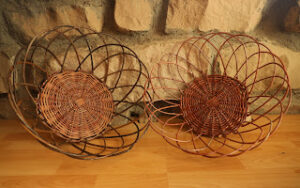
Flower Baskets
Level: Beginner/Intermediate
Class Length: 6 hours (9am to 4pm with 1-hour lunch breaks)
In this class, you will develop your base-weaving skills by learning the french randing technique on your round base. You will then create an intricate border that serves as the walls of this unique basket.
Skills: Round French randing bases, unique border.
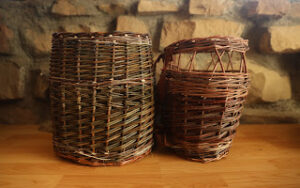
Pack Baskets
Level: Advanced (Students should be experienced weavers, capable of weaving a sturdy, even, & attractive basket they are satisfied with)
Class Length: 12 hours (2 days of 9am to 4pm with a 1-hour lunch break)
Our most requested class! This is the culmination of our willow weaving curriculum! Weaving your own pack basket requires mastery of most willow weaving techniques. Over the course of a weekend, you’ll create a durable, beautiful backpack made of willow! This 2-day class covers a range of advanced weaving topics, including a selection of fancy weaves like the herringbone that make your pack basket stand out. We’ll focus on basket shaping to create a curve that fits your back well and holds the kind of objects you want to carry. At the end of the second day, we’ll use rawhide to attach straps to your new backpack, and you can walk away with your belongings carried in your new pack baskets!
Skills: Oval bases, advanced French randing techniques, herringbone weaves, windows and gaps in baskets, 4-rod and 5-rod wales, advanced basket shaping, basket feet, pack basket straps
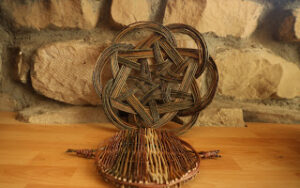
Polish Bread Basket and Tension Tray
Level: Beginner (No experience needed, but great for developing your basketmaking skills)
Class Length: 6 hours (9am to 4pm with 1-hour lunch breaks)
In this class, you will learn how to make two unique baskets. A tatza, also known as a Polish bread basket or Celtic knot basket, is made by weaving 36 willow rods into an intricate pattern. A tension tray utilizes a single-ring frame and an over-under weave to create a tray or trivet. Both baskets utilize tension to hold their unique shapes.
Skills: Tension weaving, over-under weave, circle basket frame, willow wrapping.
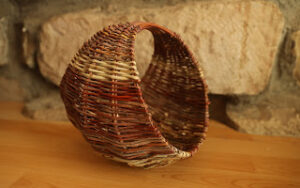
5-Ring Frame Baskets
Level: Beginner (No experience needed, but great for developing your basketmaking skills)
Class Length: 6 hours (9am to 4pm with 1-hour lunch breaks)
In this class, you will learn how to weave a 5-ring frame basket. You will create 5 hoops (rings) out of willow and weave them together using an over-under plain weave. This basket is a great start to learning to weave a variety of frame or ribbed baskets. You will develop control of your weaving and walk away with a unique useful basket!
Skills: Frame weaving, over-under weave, circle basket frame, willow wrapping.
Winter – Spring 2025 Basketry Schedule
| Dates | Location | Teacher(s) | Class | Register |
|---|---|---|---|---|
| January 18, 2025 | Palisade, Colorado | Jenna Bradford | Willow Weaving: Tatzas and Tension Trays | Register |
| February 1, 2025 | Paonia, Colorado | Jenna Bradford | Willow Weaving: Flower Basket | Register |
| February 9, 2025 | Carbondale, Colorado | Jeff Wagner | Willow Weaving: Flower Basket | Register |
| February 16, 2025 | Carbondale, Colorado | Jeff Wagner | Willow Weaving: Oval Basket | Register |
| March 1 – 2, 2025 | Palisade, Colorado | Jeff Wagner | Willow Weaving Weekend | Register |
| March 15, 2025 | Carbondale, Colorado | Jenna Bradford | Willow Weaving: Wall-Hanging Basket | Register |
| April 19, 2025 | Durango, Colorado | Jenna Bradford | Willow Weaving: 5-Ring Frame Basket | Register |
| May 3, 2025 | Grand Lake, Colorado | Jenna Bradford | Willow Weaving: 5-Ring Frame Basket | Register with Rocky Mountain Folk School |
Don’t See The Class You Want?
We teach public and private basketry classes across Colorado, and we want to work with you to bring basketry to your community! Get in touch with us and we can schedule a class or a series of classes. Usually, we need about 2 months of lead time to fill a public class. We can easily teach in these communities:
- The Front Range: Boulder, Denver, and Colorado Springs
- Colorado’s Western Slope: Paonia, Montrose, Gunnison, Grand Junction, Carbondale, and Aspen
- Four Corners Region: Durango, Mancos, and Cortez
Host a Basketry Class in Your Community
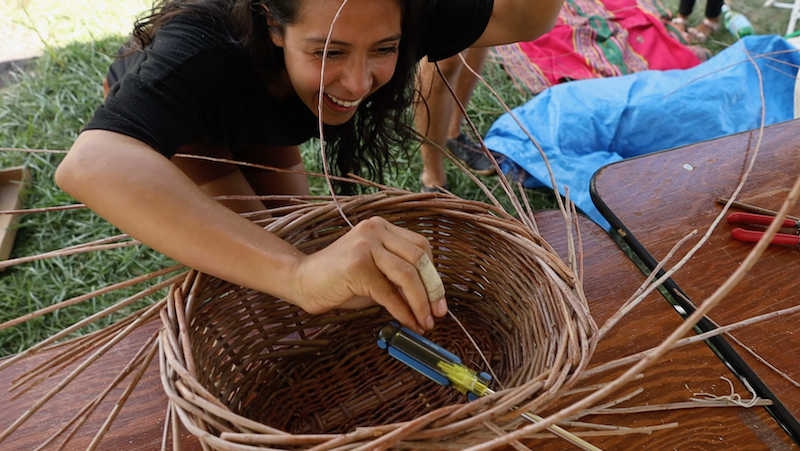
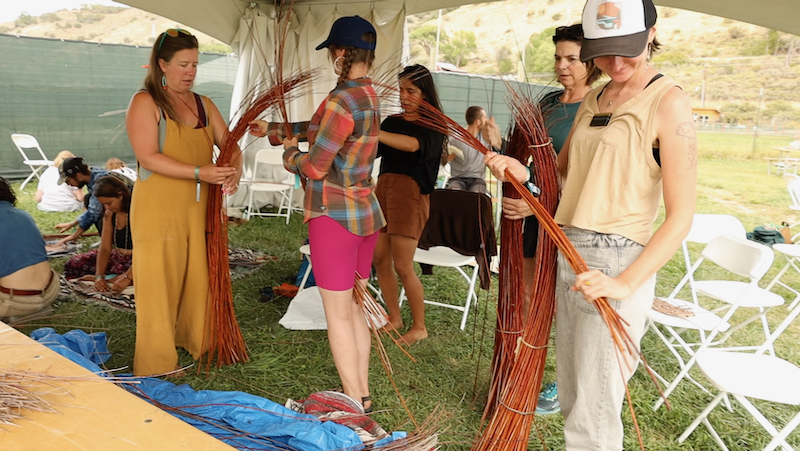
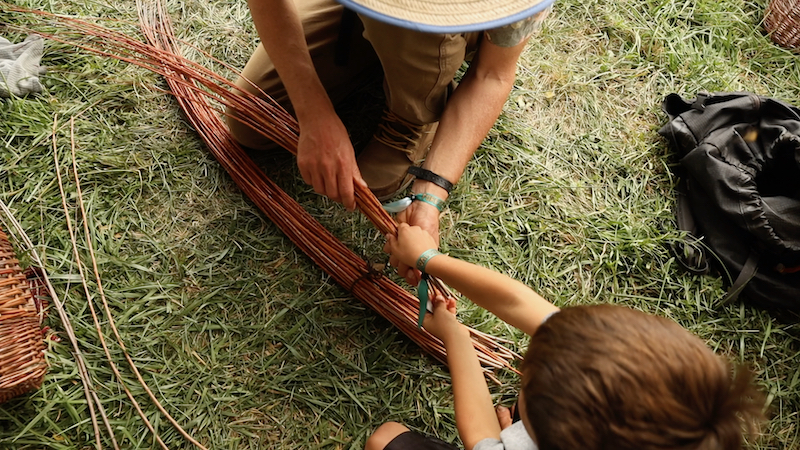
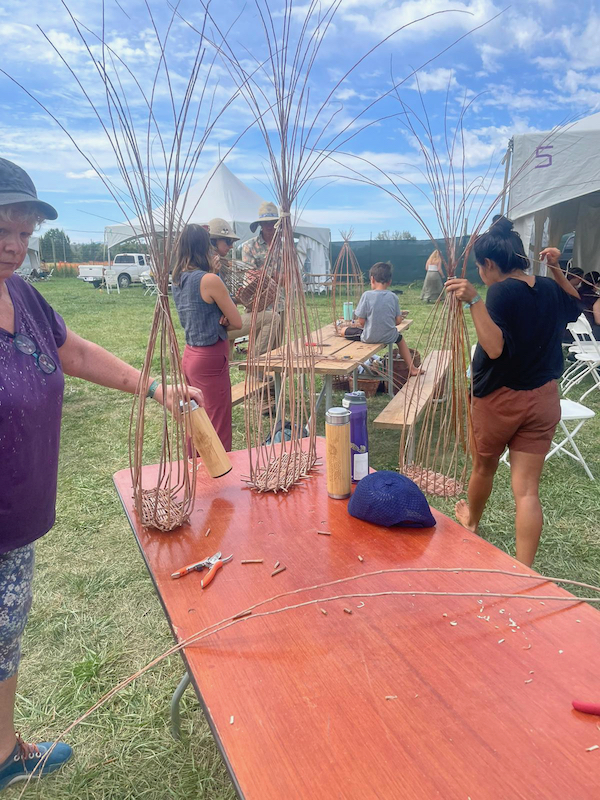
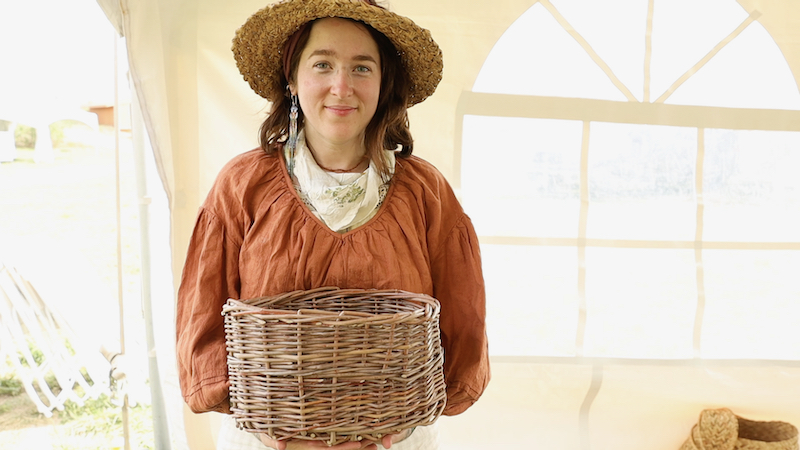
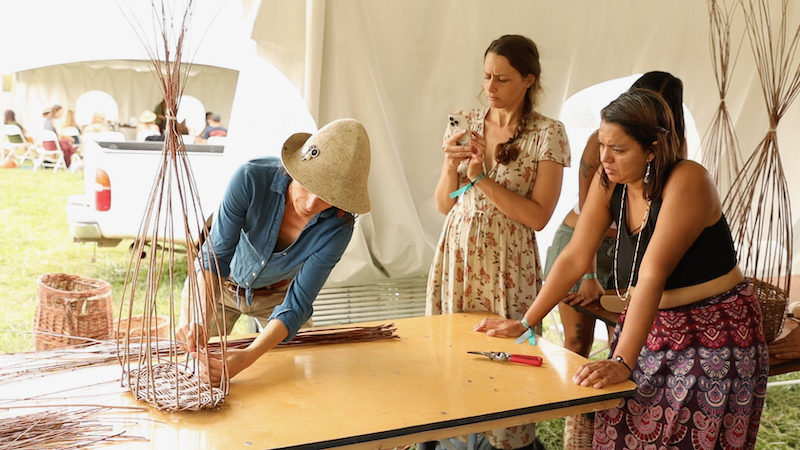
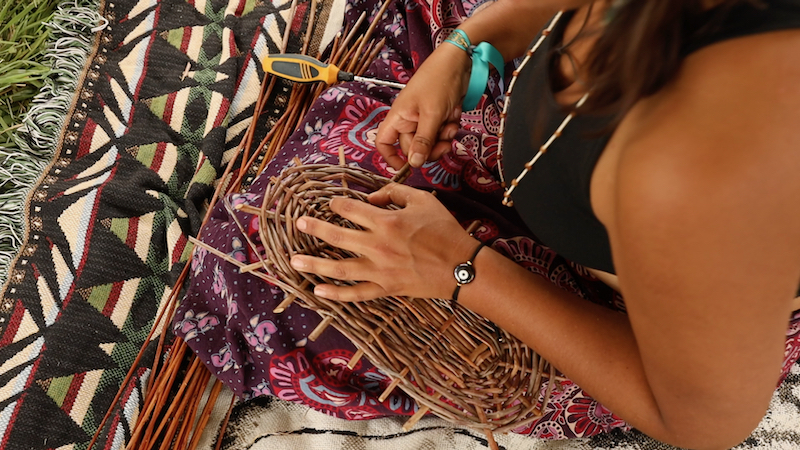
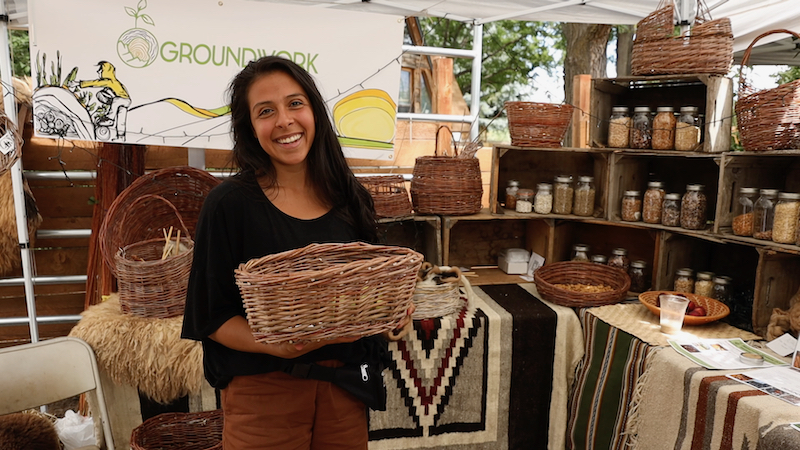

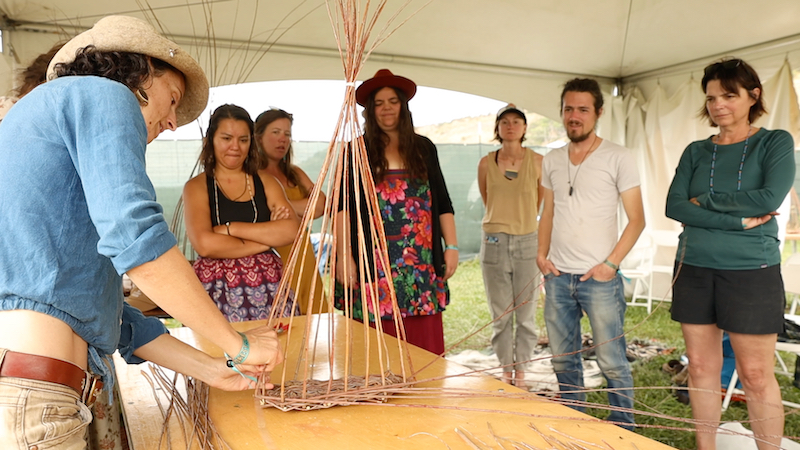
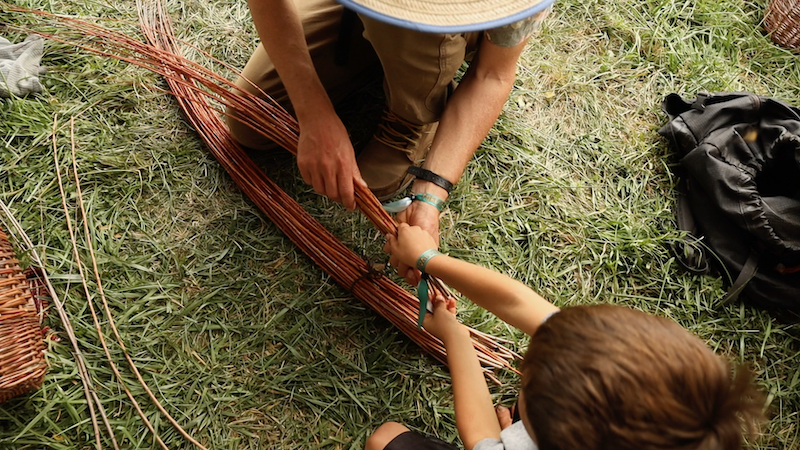
Meet The Teachers
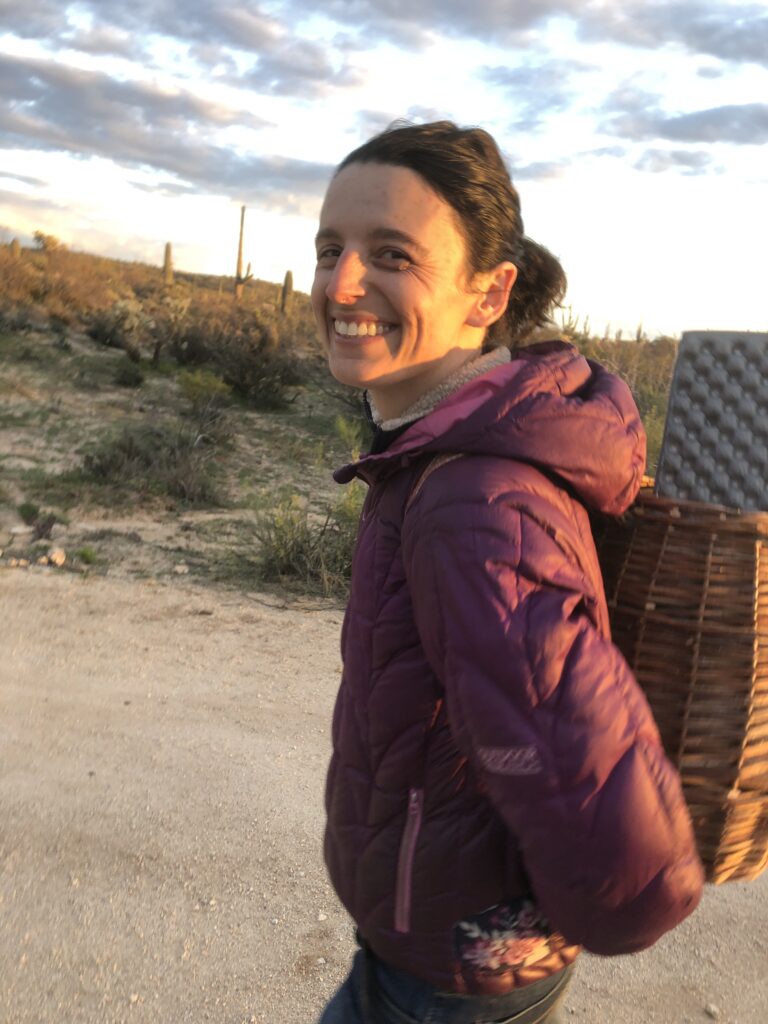
Jenna Bradford
Jenna grew up in the Sacramento River delta in California, swimming, climbing trees, searching for animals along the water’s edge, studying their ways, and always looking for excuses to be outside. She received her B.A. in Environmental Studies and Bioethics from Loyola University in Chicago. Before becoming a teacher, Jenna worked on farms in Colorado, designed and sewed clothing, and studyied plants through an herbalism apprenticeship with Wildroot Botanicals and an ethnobotany immersion with Raven’s Roots Naturalist School. Jenna taught 5th and 6th grade at Paonia’s North Fork School of Integrated Studies. She is excited to continue with some of her current students on this adventure. Jenna loves teaching because she loves learning and loves to share that enthusiasm with others.
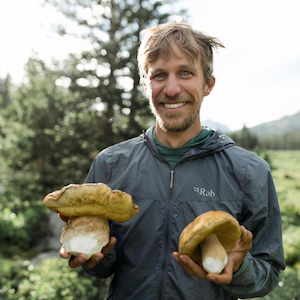
Jeff Wagner
After a university education didn’t provide sufficient answers, Jeff began seeking answers to the big questions that weren’t answered by academia: how we might reimagine U.S. society in the age of climate change, and what it means to be a responsible human in an unraveling world. For over a decade, Jeff sought answers outside the mainstream: living at wolf sanctuary in the Colorado mountains, leading NOLS expeditions across North America, and facilitating cross-cultural semesters in the Andes, the Amazon, the Himalaya, and the great Mekong River Basin. Jeff’s biggest focus has been teaching to the cultural roots of environmental issues, and helping students both experience and examine different ways of life that can be applied as cultural activism at home in North America. As a person dedicated to questioning the mindsets stemming from settler-colonialism, Jeff finds inspiration in the communities working to maintain and strengthen relationships with the natural world and with the sources of food, water, clothing, shelter, and meaning. Jeff likes walking slowly, weaving fabric and baskets, and growing beautiful varieties of heirloom seeds. Jeff founded Groundwork to help people pursue the goal of becoming ancestors that their descendants will be proud to tell stories about. Jeff is a certified Wilderness First Responder.